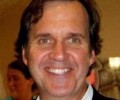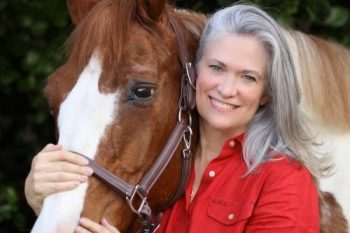Maya Angelou died Wednesday. She was 86. Initial news said she died peacefully at her home. Although not certain, I think this is the same house, where as a student of hers at Wake Forest back in 1983, I presented my final exam on the stage she created on her living room floor.
My final exam involved presenting a speech I had to write in the persona of the abolitionist and freed slave Frederick Douglass for her class “Race, Religion, Politics and the South.” Not the easiest exercise for someone from white privilege and an all-white fraternity.
This woman, who had lost her voice for years as a child — “I Know Why the Caged Bird Sings” — helped me find mine, just as she has helped countless other students and people worldwide find theirs. Today I am remembering that first day as a senior in her class in Wingate Hall. The window behind me was open and the beach song “Build Me Up Buttercup” was wafting in from the jukebox of my fraternity. Ms. Angelou was in front of the class and I could almost feel her beckoning me forward into an unknown future with her voice — that voice! Who can ever forget the rising and falling of her voice?

John R. Hilley
I will never forget her first lesson. There must have been about 25 students waiting for our famous teacher to arrive. She walked in and in short order asked students to introduce their fellow students to her using full names with titles. Within 15 minutes we knew full names of individuals who had been strangers, and we received our first lesson on the importance of names and identity: a lesson delivered in part poetry, part lecture. Years later, I saw my former teacher standing on the Capitol steps, delivering her poem “On the Pulse of Morning” at William Jefferson Clinton’s presidential inauguration in 1993 and heard her powerful words naming nations, ethnicities and people calling us all to our common identity standing on the Rock, planted by the Tree beside the River. I was beaming with pride, saying I have witnessed some of those truths and glimpsed some of those rich images when they were gestating in the aliveness of what she created in the classroom with her students. Remember who you are! Claim it! Call it forth in others! And greet others in the spirit of that knowledge.
In that same house, Dr. Angelou greeted my father and mother when they came to the party she held for graduating students. Much to my consternation, my mother, with the best of intentions, presented Ms. Angelou a copy of the Junior League of Monroe, Louisiana’s, “Cotton Country Cookbook,” known for its butter-intensive recipes and thinly veiled glorification of bygone Southern days. Dr. Angelou, ever hospitable, welcomed the cookbook with its pen-and-ink illustrations of slaves picking cotton and remarked something along the lines of “I am sure there must be wonderful recipes here.” Another lesson taught to this student: the lesson of hospitality.
Dr. Angelou introduced me not only to my classmates that first day, and then to a host of other poets and clarion voices such as Frederick Douglass, but she also introduced me to a deeper self which called forth a new voice for me. Where that eventually led me was to seminary and then to postgraduate work and study in misanthrope South Africa to learn from voices long silenced. I went on to minister in the church and work in nonprofits with urban youth to help them access college and organize for better economic conditions in their neighborhoods.
News of her death has me reminiscing of days long ago and feeling blessed for the long reach of her influence. Using your own authentic voice is a tricky thing whether you are 68 or 53 or 22. No matter our age, we all struggle to find it — and keep it — this sense of who we are in relation to the world and God, what I call our relational competence. She had little patience for anyone who spoke in front of her class with a “small voice” and would challenge us to reach down and project with confidence, purpose and poise.
I’m now in my 50s, and my voice can get a little tired; it isn’t always certain as it was in my youth, and it can be a bit warbly when it comes to addressing the social issues of the day. But today, I think about Maya Angelou’s voice and my own becomes stronger. I find myself wanting to right the societal wrongs, tell my wife and kids I love them, sing and make a joyful noise and most of all, to be a bit more gracious and hospitable to those around me just as she was to all, including my well-intentioned mother. I moved on from Wake Forest, never taking the time to reach back and to say thank you to her. So today I say — with a strong voice — “Thank you, Maya Angelou!”
John R. Hilley (’83) of Nashville, Tennessee, is the pastor of East Brentwood Presbyterian Church and is founder and president of Patmos Consulting, which assists nonprofits with leadership, sustainability and resiliency strategies (jhilley@patmosconsulting.com).


